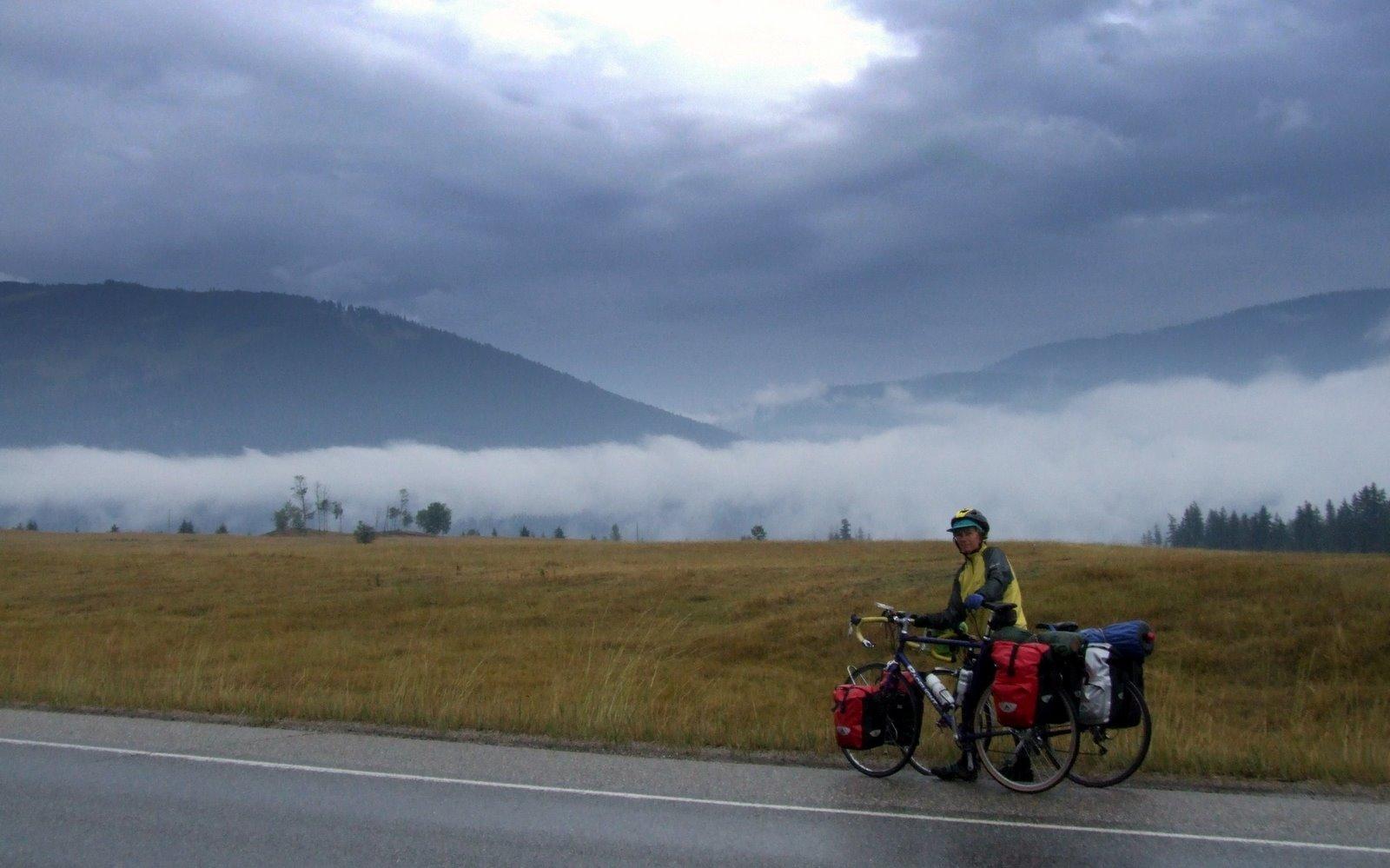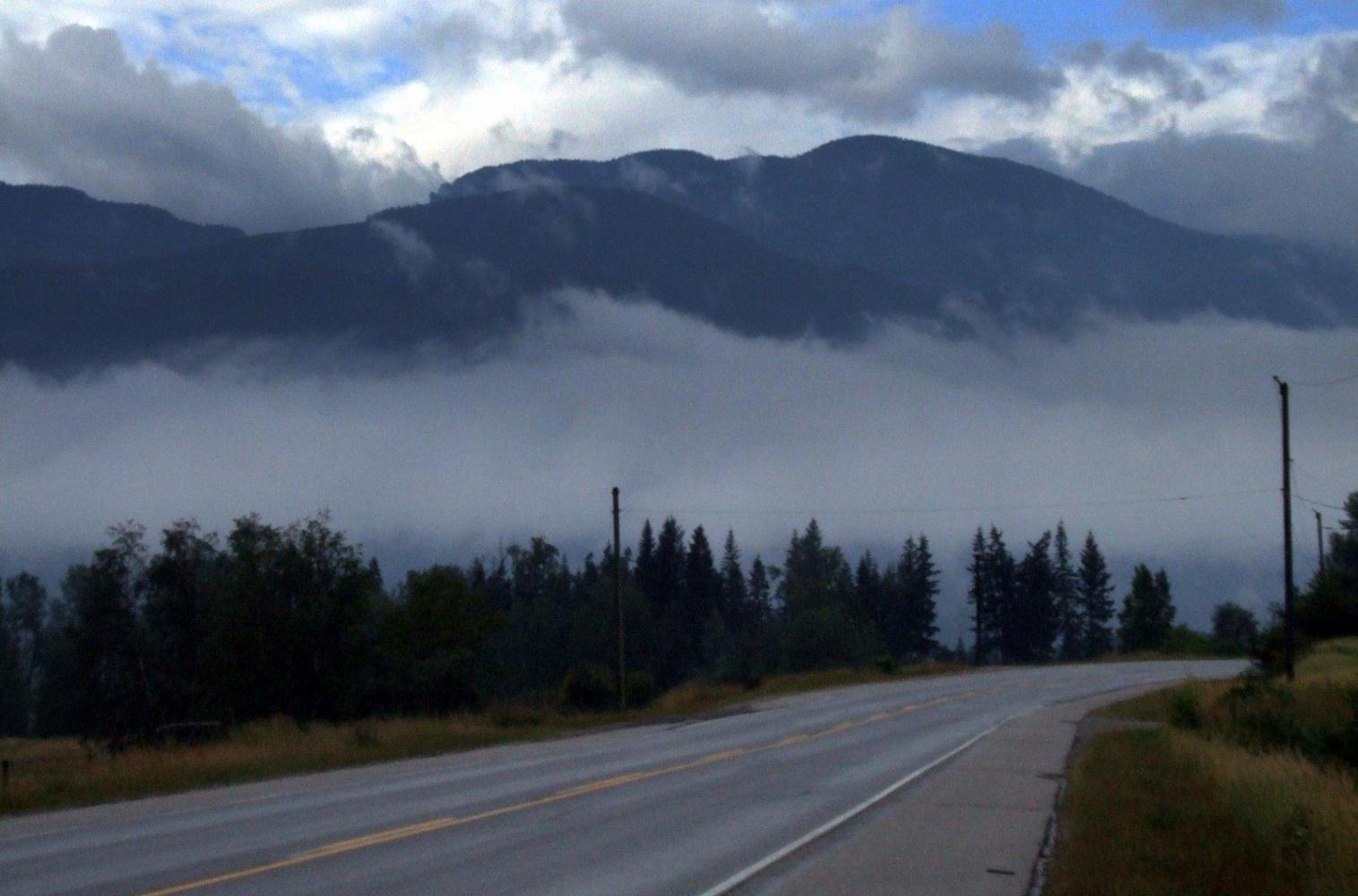August 22: Birch Island to Blue River, British Columbia
ET ALORS, il a plu et ça nous a plu!
It rained soon after darkness, the temperature dropping with it. It rained again soon after dawn. It created rivulets in the forest floor and brought light leaves from the trees. It took the smoke out of the air but it brought low clouds instead. The thermometer never rose beyond 12. The sun shone briefly between two clouds and then vanished for good.
Well, it was dull and shadowless and at first we rode in worrying low cloud. Fog, in other words. But it was a relief. For the first time since Savona we could see the mountains from top to bottom, near and far. Our road is still flat, moving up the same valley, and we are wearing all
the clothes we wore in the snow back in the Adirondacks at the start of May. But the view is starting to make up for it. The valley walls are imposing, sometimes towering, sometimes lower, always impressive.
By late afternoon the sun made an attempt at shining again but the temperature stayed where it was and by evening it was pouring again. We stopped in a motel and we are pleased that we did. There has been thunder in the last hour and it is no weather to be camping. We'd be warm enough in the tent but sitting around outside, especially since we finished the day in mid-afternoon, would have been miserable.
One thing we've noticed in Canada, by the way, is how many immigrants there are. I take it that one of the largest countries in the world with a population of only a dozen and a bit million needs as many extra Canadians as it can. We have met Germans who've moved here, and British people and others. Today we met an Estonian.
Now, you may be clever and know where Estonia is. If you don't, I can tell you that it's one of the countries of north-western Europe, up to the east of Sweden and near Finland, that were part of the Soviet Union.
"Were you there for independence?" we asked.
The woman was tall and slim, almost thin, with blond hair. She could have walked out of a tourist brochure picture. She should have been posing beside a reindeer. She should have been wearing one of those patterned woollen hats with ears that hang down at the side.
"No," she said. "I was already living here."
"How did you manage to leave while the Russians were still in charge?"
"I think they could see the way things were going. At first it was impossible to leave. And then, in the last years, it became easier."
She told us a complicated story of how relatives had fled the country before and during the war, anticipating a Russian invasion. They had settled in different parts of Canada and the USA.
"I was allowed to come and visit them. I ended up here and I stayed, thanks to a Frenchman... or to a Québecois, anyway!"
That was 16 years ago. She has never learned French - she speaks Estonian, Russian and English, and she can understand Finnish - and her husband has given up speaking it. All part of the complexities of seeking a new life in a new continent or in a different part of the same continent.
| Rate this entry's writing | Heart | 2 |
| Comment on this entry | Comment | 0 |

